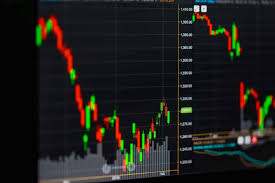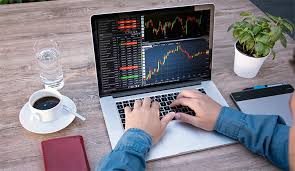
Beginner’s Guide to Forex Trading
Forex trading is a fascinating and potentially lucrative endeavor that attracts many individuals interested in financial markets. As a beginner, you may feel overwhelmed by the complex terminologies and the fast-paced environment of currency trading. However, with the right knowledge and approach, anyone can transition from a novice to a competent forex trader. In this comprehensive guide, we will explore essential aspects of forex trading, helping you take your first steps in the forex market. For resources on trading brokers, you can visit beginner forex trading Trading Brokers in Vietnam.
What is Forex Trading?
Forex trading, also known as foreign exchange trading or currency trading, involves buying and selling currencies in the foreign exchange market. The goal is to profit from the fluctuations in exchange rates between different currencies. The forex market is one of the largest and most liquid financial markets in the world, with trillions of dollars traded daily.
Understanding Currency Pairs
In forex trading, currencies are quoted in pairs, such as EUR/USD or GBP/JPY. The first currency in the pair is known as the base currency, while the second one is the quote currency. The exchange rate indicates how much of the quote currency is needed to purchase one unit of the base currency. When trading currency pairs, traders speculate on whether the value of the base currency will rise or fall against the quote currency.
Major, Minor, and Exotic Pairs
Currency pairs are categorized into three main groups:
- Major Pairs: These pairs involve the most traded currencies, such as USD, EUR, JPY, and GBP. Examples include EUR/USD and USD/JPY.
- Minor Pairs: These pairs do not involve the USD but still represent commonly traded currencies, like EUR/GBP and AUD/NZD.
- Exotic Pairs: These include a major currency and a currency from a developing economy, such as USD/TRY (Turkish Lira) or EUR/SEK (Swedish Krona).
Choosing a Forex Broker
Before you begin trading, it’s crucial to find a reliable forex broker. A broker acts as an intermediary between you and the forex market, providing you with the platform to execute your trades. When selecting a broker, consider the following factors:
- Regulation: Ensure that the broker is regulated by a reputable financial authority. This helps protect your funds.
- Trading Platform: Look for a user-friendly platform that suits your trading needs, such as MetaTrader 4 or 5.
- Spreads and Fees: Compare the spreads and commissions charged by different brokers to find one that is cost-effective.
- Customer Support: A broker with excellent customer service can assist you in resolving issues promptly.
Understanding Market Analysis
Successful forex trading requires a solid understanding of market analysis. There are two main types of analysis used by traders:
1. Fundamental Analysis

Fundamental analysis involves evaluating economic indicators, geopolitical events, and news releases that can impact currency values. Traders often look at factors such as interest rates, inflation rates, political stability, and employment data to forecast currency movements.
2. Technical Analysis
Technical analysis focuses on historical price movements and patterns to predict future price action. Traders use charts, indicators, and various tools to identify trends and potential entry and exit points. Understanding technical analysis is crucial for short-term trading strategies.
Developing a Trading Strategy
Every trader, regardless of experience level, should develop a trading strategy. A solid trading strategy outlines your approach to trading and helps you remain disciplined during market fluctuations. Consider the following elements when creating your strategy:
- Trading Style: Decide whether you want to be a day trader, swing trader, or position trader based on your schedule and risk tolerance.
- Risk Management: Implement risk management techniques, such as setting stop-loss orders and determining position sizes to protect your capital.
- Entry and Exit Rules: Define specific criteria for entering and exiting trades based on your analysis.
Practicing with a Demo Account
Before committing real money to forex trading, it’s advisable to practice with a demo account. Most brokers offer demo accounts that allow you to trade with virtual money. This practice can help you familiarize yourself with the trading platform, test your strategies, and build confidence without risking your capital.
Staying Informed and Continuing Education
The forex market is constantly evolving, and it’s essential to stay informed about market trends, news, and economic developments. Joining trading communities, attending webinars, and reading forex blogs can enhance your knowledge and provide valuable insights from experienced traders.
Emotional Discipline in Trading
Forex trading can be emotionally challenging. Fear and greed can cloud your judgment and lead to impulsive decisions. Establishing emotional discipline is pivotal for successful trading. Stick to your trading plan, avoid revenge trading, and practice patience to allow your strategy to unfold.
Conclusion
Embarking on your forex trading journey can be an exciting adventure filled with opportunities for financial growth. As a beginner, it’s essential to take your time, educate yourself, and develop a solid trading plan. By following the steps outlined in this guide and continually improving your knowledge and skills, you can pave the way for successful trading in the forex market. Remember, success in forex trading doesn’t happen overnight, but with dedication and practice, you can achieve your trading goals.
Start Your Forex Journey Today!
Now that you have a solid understanding of forex trading basics, it’s time to take action and start your journey in this dynamic market. Set up a demo account, explore various strategies, and immerse yourself in the world of currencies!
